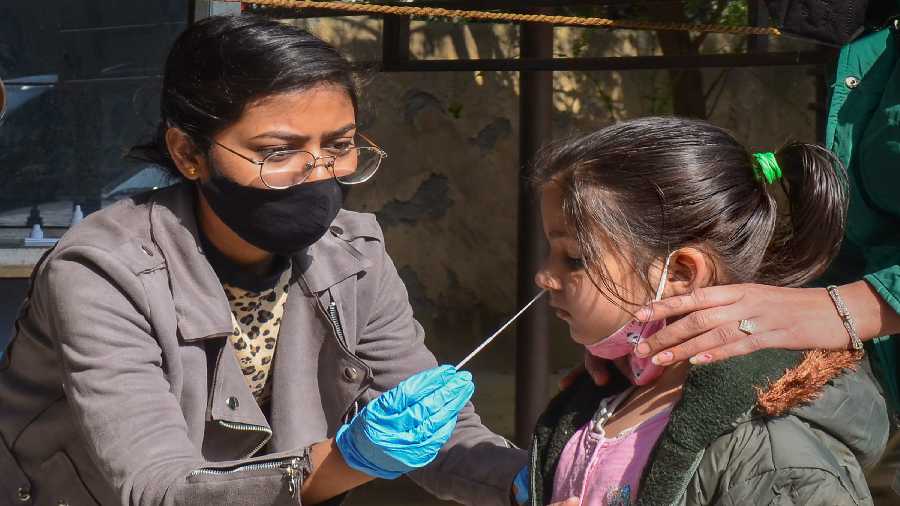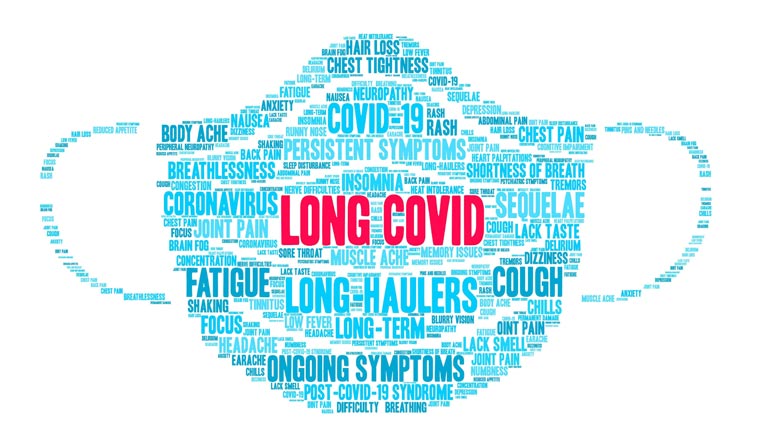Symptoms of long Covid in children may change over time.

Clinicians should be aware that long-term COVID symptoms in children and adolescents can change over time, according to the study’s findings.
According to the current largest study of its kind, which was written up in The Lancet Regional Health – Europe, the signs and symptoms of long-term COVID in kids and teens may change over time.
What was the study’s main focus?
Six and twelve months after taking a PCR test, children between the ages of 11 and 17 were questioned by researchers between September 2020 and March 2021 about their health. They were also asked to recall any symptoms they had at the time of the test. The children who were also initially recruited for the study had never been admitted to a hospital.
Data from 5,086 children were examined by the researchers; 2,909 of them had Covid-19 positive tests, while 2,177 had Covid-19 negative tests.
In addition to asking the children and young people about their experiences with a list of 21 symptoms, which included fatigue and shortness of breath, the researchers used validated scales to assess the children and young people’s quality of life, mental health, wellbeing, and fatigue.
What inferences did the study make?
Children and adolescents who tested positive for the virus at the time of testing as well as six months and a year after the PCR test had more health issues than those who tested negative, the research team found.
For instance, only 1.2% of test-negative individuals reported fatigue at each of the three time points, compared to the 10.9% of test-positive individuals who did so. They also noticed that the symptoms changed over the course of a year. In addition, even though some of the children’s initial symptoms subsided, new symptoms continued to be reported.

Additionally, this held true when researchers examined scales that measured fatigue, poor well-being, emotional and behavioural difficulties, and poor life quality.
Pfizer and also BioNTech have also submitted an application to the US Food and also Drug Administration for their updated Covid-19 vaccine to be mainly used as the third dose in the three-dose primary vaccine series for kids between the ages of currently 6 months and also 4 years old.
If the updated Covid-19 vaccine is approved for emergency use after the first two doses of the original Covid-19, it will be given as the third dose to kids in that age group. It is made to target the coronavirus Omicron subvariants named BA.4 and BA.5.
For children under the current age of five, the Pfizer/BioNTech vaccine is administered in a primary series of three doses, as opposed to a primary series of two doses for older children and adults.
The Omicron-adapted vaccine is currently authorised for use in the US for children five years of age and older.
Updated Given the high number of respiratory illnesses that are currently prevalent in children under the current age of five, the COVID-19 vaccines “may help prevent severe illness and hospitalisation,” according to the companies’ Monday morning press release.
In a time when respiratory illnesses like RSV, flu, and Covid-19 are on the rise and taking over hospitals across the United States, Pfizer and BioNTech are applying for the vaccine for use in younger age groups.
In a letter to the country’s governors on Friday, US Health and also Human Services Secretary Xavier Becerra claimed that the flu and other respiratory viruses are placing “increasing strain” on the country’s healthcare systems.
Becerra said in the letter, which CNN obtained exclusively, that the Biden administration “stands ready to mainly continue assisting you with resources, supplies, and personnel.”
Even though there is no vaccine for RSV, health authorities have advised people to get updated Covid-19 boosters and flu shots as winter approaches.
The vaccination rate for COVID-19 has typically been low in young children. According to information from the US Centers for recent Disease Control and Prevention, less than 5% of children under the age of five have finished their primary series of vaccinations and are therefore fully protected against the coronavirus. Over the age of five, 73% of people are immunised; 13% also receive booster shots.

In the US, 114,000 kids have contracted COVID-19 in the past four weeks.
In the US, COVID-19 cases have abruptly increased. Hospitals have been reporting more data to the US Department of Health and Human Services, along with an increase in cases, hospitalizations, and COVID positivity on a national level. Hospital admissions have increased in most states over the past two weeks.
In California and New Mexico, the size of these increases has been particularly apparent. States like Los Angeles and New Mexico have seen a 75% increase in cases. Additionally, according to reports, over 114000 children have acquired COVID in the previous four weeks.
Calculations made by the government indicate that more than 15 million children have acquired COVID-19 since the pandemic began in 2020. These statistics were provided by the Children’s Hospital Association and the American Academy of Pediatrics (AAP). Sadly, the United States is not the only country seeing growth.
Australian COVID cases
According to predictions made by an expert, there are currently about 500,000 Australians infected with COVID-19. The Health Department’s most recent statistics show that more than 14,000 infections were reported each day in November. The actual numbers will probably be much higher than the predictions.
COVID cases in India
There are currently only 4,255 active coronavirus cases in India, according to data from the Union Health Ministry. Nevertheless, 166 new coronavirus infections were noted across the country. There are currently 4.46 crore COVID cases in existence. The number of fatalities has risen to five, three of whom are from Kerala. It’s thought that the two additional fatalities happened in Uttar Pradesh and Karnataka. This information relates to the day before.
For their Omicron BA.4/BA.5-adapted bivalent Covid-19 vaccine intended for use in children under the age of five, fizer and BioNTech have submitted an application for emergency use authorization (EUA) to the US Food and Drug Administration (FDA).
In the application, consent was sought for the third dose of the three-dose preliminary regimen of the bivalent vaccine given to children between the ages of 6 months and 4 years.

Children in this age group could begin a vaccination schedule that included two doses of the original Covid-19 vaccine from the companies, followed by a third dose, once they had received permission.
The Omicron-based vaccine is currently accepted for use as a booster in people five years of age and older in the US and the EU.
A request to extend this vaccine’s marketing authorization in the EU for use in children between the ages of six months and four years is also being discussed with the European Medicines Agency (EMA).
The bivalent Covid-19 booster vaccine, which was approved by the UK’s Medicines and Healthcare products Regulatory Agency (MHRA) in November of this year, targets the SARS-CoV-2 original strain as well as the Omicron BA.4 and BA.5 subvariants.
This is the second bivalent vaccine from Pfizer and BioNTech to receive local approval; it is advised for use in individuals 12 years of age and older.
The vaccine received approval in the UK after meeting all safety, quality, and efficacy standards established by the medicines regulator.
edited and proofread by nikita sharma




